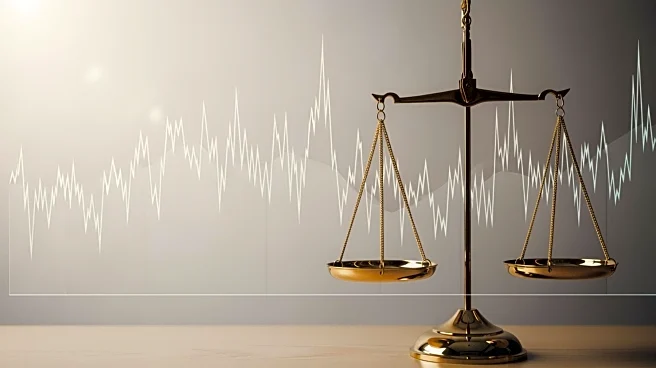What's Happening?
The U.S. Supreme Court is currently reviewing the legality of President Trump's tariffs, which have been imposed on major trading partners. During oral arguments, justices expressed skepticism about the legal authority
under which these tariffs were enacted, specifically questioning the use of the International Emergency Economic Powers Act. This scrutiny comes as the Treasury yields have dipped, influenced by recent labor market data showing a significant increase in layoffs. The 10-year Treasury yield fell by more than 6 basis points, reflecting investor concerns over economic stability and the ongoing government shutdown, which is now the longest in U.S. history.
Why It's Important?
The Supreme Court's decision on the tariffs could have significant implications for U.S. trade policy and economic relations with other countries. If the tariffs are deemed illegal, it may lead to a restructuring of trade agreements and impact industries reliant on international trade. The fluctuation in Treasury yields indicates investor anxiety over economic conditions, exacerbated by the government shutdown and labor market instability. These developments could affect public policy decisions and economic strategies moving forward, influencing both domestic and international economic stakeholders.
What's Next?
The Supreme Court's ruling on the tariffs is awaited, which could lead to changes in trade policy and economic strategy. Meanwhile, the government shutdown continues to pose challenges, with potential negotiations between Democratic and Republican lawmakers to resolve the stalemate. Economic stakeholders are closely monitoring these developments, as they could impact market stability and future economic policies.
Beyond the Headlines
The legal scrutiny of President Trump's tariffs highlights broader issues of executive power and its limits in trade policy. The case may set precedents for how future administrations approach international trade and economic emergencies, potentially influencing legal interpretations of economic powers.









